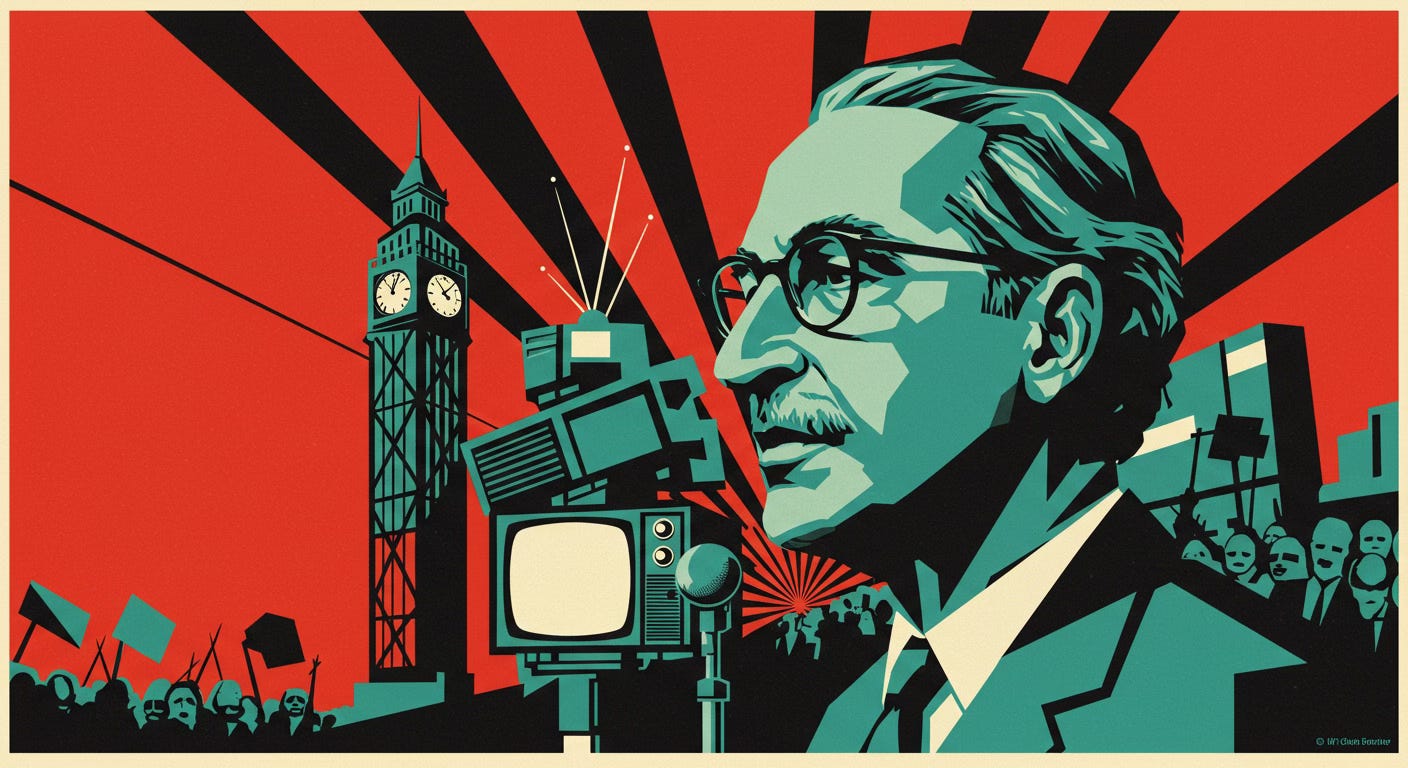Manufacturing Consent in the Age of Mental Overload: Chomsky, Consent, and the Illusion of News
Noam Chomsky, one of the most influential intellectuals of the modern era, has consistently argued that the mass media does not merely report news—it shapes and filters it to manufacture public consent for elite interests. In his seminal work Manufacturing Consent (co-authored with Edward S. Herman), Chomsky exposes how mass communication serves as a propaganda system that subtly molds public opinion, especially in democratic societies where overt authoritarian control is absent. He identifies several filters—such as corporate ownership, advertising, sourcing, flak, and anti-ideological narratives—that determine what gets reported and how. These mechanisms ensure that media narratives remain aligned with the priorities of economic and political elites, regardless of the seeming plurality of media voices.
Central to Chomsky’s analysis is the realization that the public is not necessarily being lied to but is being strategically deprived of context, relevance, and counter-narratives. Events are presented in isolation, stripped of historical and structural understanding, making it harder for citizens to question the prevailing framework. By amplifying certain stories while suppressing others, or by using language that subtly favors one perspective over another, the media does not need to fabricate facts—it only needs to frame them in a way that leads the audience to desired conclusions. This framing effect is particularly powerful when the audience lacks the time or tools to engage critically.
Here emerges the modern dilemma: people are submerged in a lifestyle dominated by work-related stress, intense productivity demands, digital distractions, and a relentless daily routine. The constant pressure to meet professional, familial, and societal expectations leaves little room for independent reflection or critical analysis. In this mental climate, the consumption of news becomes passive—a mental shortcut to stay “informed” without the energy or time to interrogate narratives. This paves the way for media manipulation to be not just effective but effortless. People unknowingly internalize the dominant narratives because resisting them requires a level of intellectual investment they cannot afford in their overburdened lives.
The mental exhaustion resulting from contemporary life routines also contributes to a kind of intellectual outsourcing. Individuals increasingly rely on pre-digested media commentary to make sense of complex global issues. They gravitate toward headlines, sound bites, and short video summaries rather than comprehensive analyses. This vulnerability is precisely what the media industry exploits—offering quick content loaded with emotional triggers and ideological cues that bypass critical thinking. This process generates the illusion of knowledge while discouraging actual understanding.
Chomsky warns of this illusion—of being informed without truly being aware. He notes that manipulation today is subtle and sophisticated, operating not through censorship but through selection. For example, during military conflicts, mainstream media tends to echo governmental positions, rarely scrutinizing the deeper geopolitical or economic motives behind interventions. Alternative perspectives are often portrayed as fringe or unpatriotic, discouraging public debate. This approach creates a narrow window of acceptable opinion, which becomes the “common sense” of the population.
The issue is further complicated by the psychological comfort that comes from aligning with mainstream views. When media narratives are repeated across channels and platforms, they begin to feel like facts. This repetition breeds familiarity, and familiarity breeds trust. Thus, even flawed or biased stories are accepted as truth if they are heard often enough. In a society with shrinking attention spans and increasing dependency on emotionally satisfying information, this cycle becomes self-reinforcing. People begin to desire media that reassures them rather than challenges them.
Moreover, the commodification of news has transformed journalism into a business of attention capture. Algorithms now determine which stories trend and what content is pushed to users, reinforcing existing biases and limiting exposure to divergent viewpoints. In this environment, media outlets become less interested in truth and more in engagement. Outrage, fear, and scandal dominate the headlines because they generate clicks. But as Chomsky argues, when media institutions prioritize profits over principles, truth becomes expendable.
In light of Chomsky’s theories, the passive consumer of news is not merely uninformed, but actively misinformed—guided by narratives designed to preserve the status quo. The real danger is not the absence of information but the illusion of neutrality and balance in what is, in fact, a deeply curated and ideologically charged media landscape. Without sustained civic engagement and critical media literacy, the population becomes a docile audience to orchestrated narratives, believing they are exercising free thought while simply echoing institutional messages.
The antidote, Chomsky would argue, is not disengagement but conscious re-engagement. It begins with awareness—understanding the filters at play and questioning the narratives we are fed. It involves seeking diverse sources, supporting independent journalism, and reclaiming our cognitive autonomy from the machinery of mass persuasion. Most importantly, it requires creating the personal space—both mentally and temporally—to think beyond the surface, to reflect before reacting, and to rediscover the power of reason in a world flooded with spectacle.
In conclusion, Chomsky’s critique remains deeply relevant in today’s hyper-mediated reality. The true power of the media is not in controlling what people think, but in controlling what they think about. As long as people remain entrapped in cycles of fatigue, distraction, and dependency, they will continue to outsource their thinking to systems that do not serve their best interests. The call to break free from this manipulation is not just political—it is existential.

